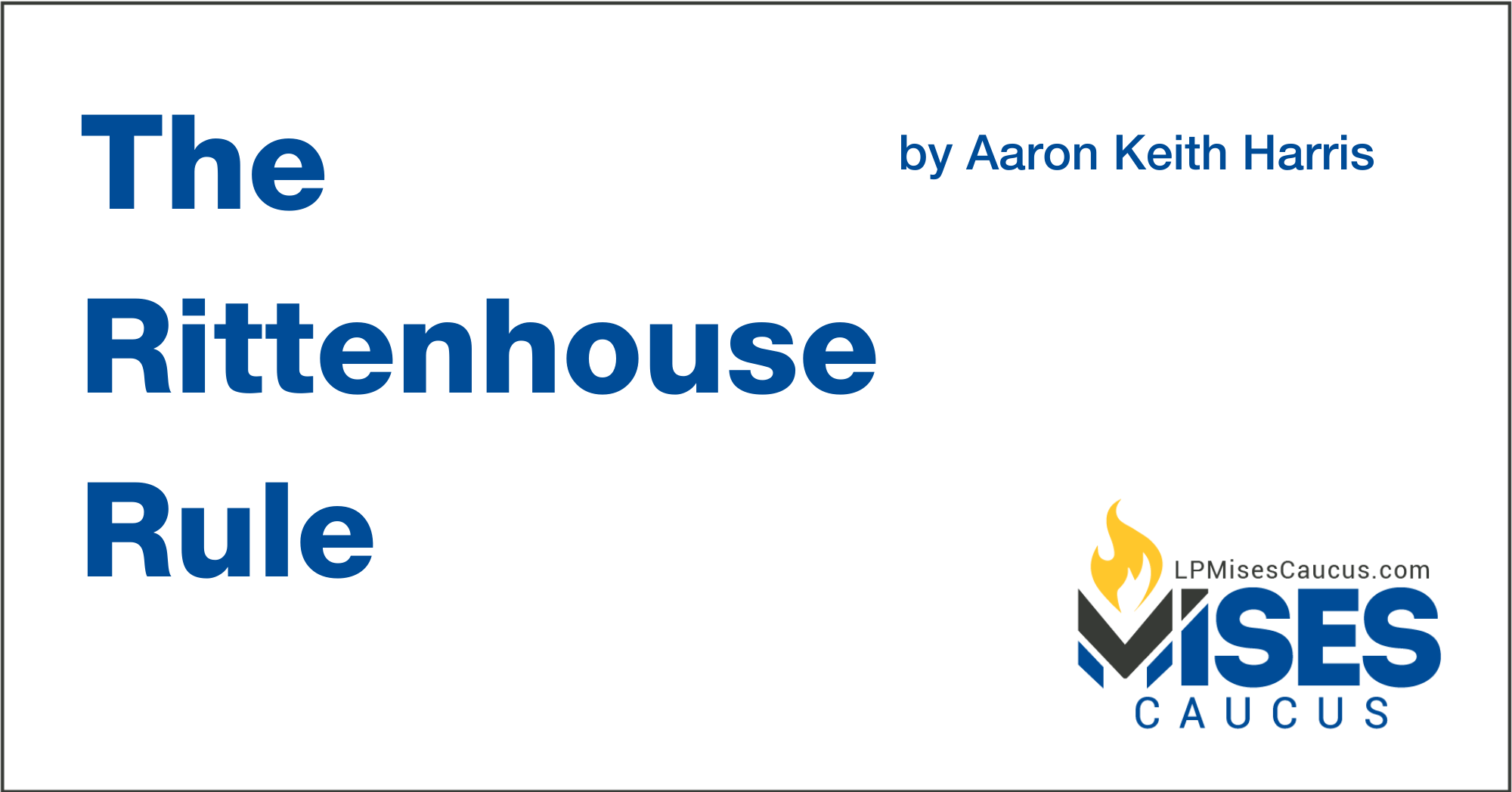All of us libertarians have at one time or another debated who actually is a libertarian, but I think it might be more productive to ask who is in fact a useful libertarian.
The Kyle Rittenhouse case has provided us with a quick and easy initial test that we might as well call the Rittenhouse Rule: If someone claims to be a libertarian but is also unwilling to publicly oppose the wrongful prosecution and widespread public defamation of Rittenhouse, that person is almost certainly not going to be someone we can count on in our fight against the State.
The facts of the case are clear: Rittenhouse was in downtown Kenosha that night to protect people and property from a mob intent on destruction, and he did not fire at anyone who was not directly attacking him. That’s all that should matter.
Libertarians, by definition, advocate self-ownership and the right of every person to defend one’s own life and property from aggression. That’s the basis of all just law, and we reject as morally invalid any law that says otherwise.
The State and its minions would rather the law be whatever they say it is, for whatever reasons they care to give. That’s one reason the corporate media, acting as the State’s PR department, sought to paint Rittenhouse as a racist goon intent on murdering “protestors.” And it’s why they did everything they could to leave the impression that his “victims” were ordinary black folks standing up for themselves and not white leftist hooligans helping to set a city on fire. If the State had succeeded in railroading Rittenhouse, prosecutors across America would have more legal and political cover to try to do the same to anyone else who might choose to use a gun in defense of life and property when the agents of the state could not or would not do so.
Why then did some libertarians—not many, but a few—join the digital mob who defamed Rittenhouse before, during, and after his trial? As far as I can tell, there are three reasons why, any of which should disqualify such a libertarian from being someone we can count on.
First, they could have simply not been bothered to look at the facts (and the footage) for themselves, choosing to accept without question whatever narrative the Cathedral was pushing. Such people are too lazy and naïve to spend any time thinking about.
Second, they know the facts about what happened that night in Kenosha, but they think Rittenhouse, by virtue of his being near a Black Lives Matter “protest” without supporting it, had impure motives and was acting provocatively. This group has not just passively accepted the Cathedral’s narrative, they have internalized a key part of it, namely that anything done in the name of “antiracism” cannot be questioned by anyone who is not racist. To believe this is to believe that the Non-Aggression Principle (NAP) can be set aside if you have a good enough reason. These “left-libertarians”—as well as the “post-libertarians” who have developed as a reaction to them—can’t be counted on until and unless they resolve their cognitive dissonance by unreservedly recommitting to the NAP.
The third group are those who know Rittenhouse did nothing wrong and who know that the NAP can’t rightly be set aside for any reason, but who are nevertheless too timid to take the right stance because they think it damages the libertarian cause in the eyes of the Cathedral. These are the same people who think that if we act like respectable Republicans and Democrats—if we talk about the things the corporate media says we should talk about in the way they say we should talk about them—then they will give us respectful coverage, let us on the debate stage, and present us as an acceptable alternative to the electorate. In short, these are the libertarians who try to be respectable by agreeing that peaceful people should be forced to “bake the cake.” No serious person can say that’s an approach that will put the LP at the head of an effective liberty movement.
It’s not necessary for one to think Rittenhouse is a hero, and it’s certainly not necessary to be happy that two of his attackers were killed, even though they both seem to have led thoroughly reprehensible lives. But it is necessary for libertarians—and Libertarians—to always be bold enough to defend the propertarian understanding of life and liberty, especially when the State and the Cathedral are explicitly trying to strip the last vestiges of it from what’s left of our Constitutional protections and from the minds of the people. Applying the Rittenhouse Rule from here on out is a quick way to test for that boldness.

